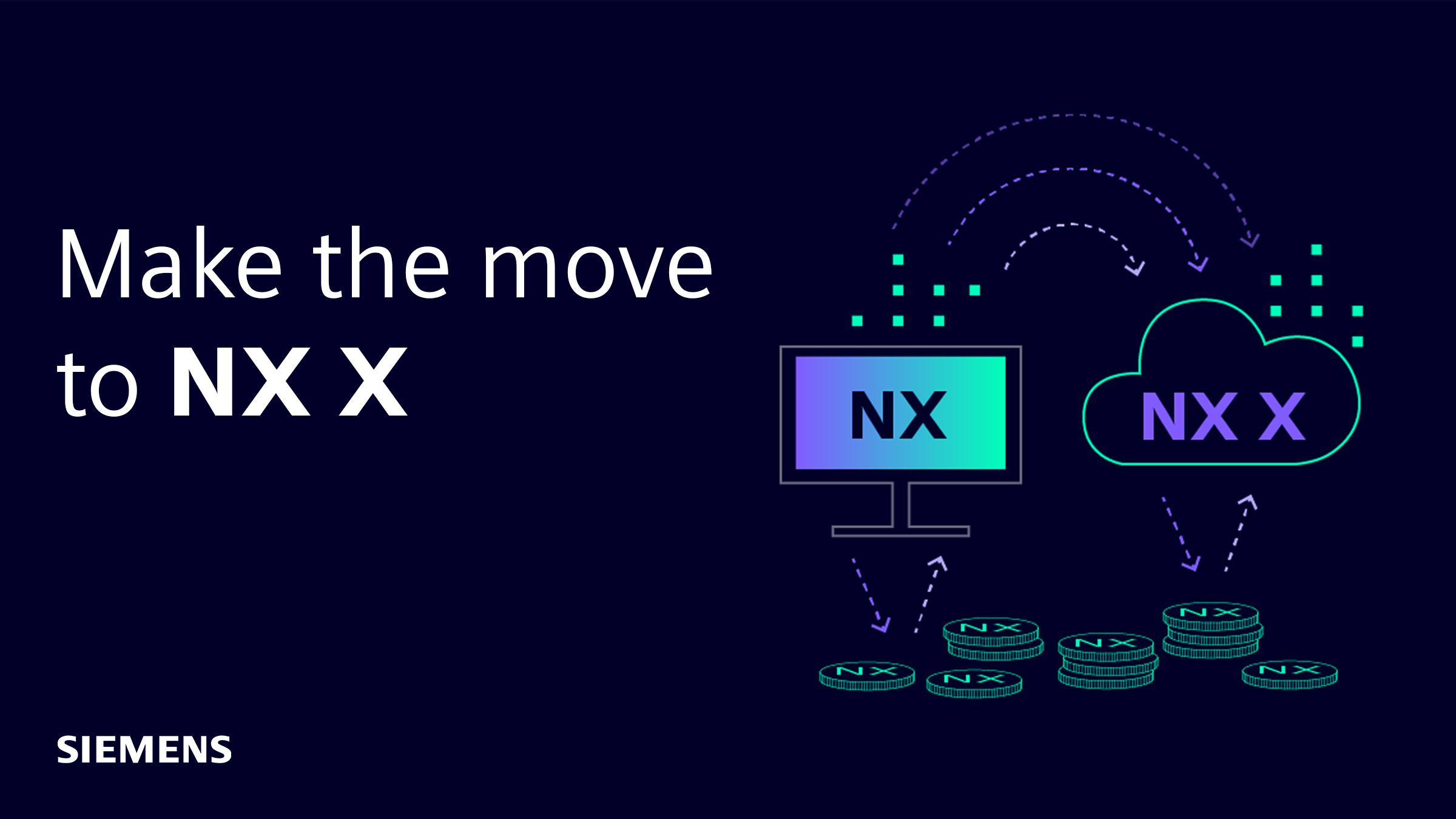Making the shift from Siemens NX to NX X software

In the fast-paced world of product design and engineering, staying ahead of the curve is crucial. To keep up with the ever-evolving demands of the industry, software solutions must continuously innovate and adapt. Siemens NX™ X software offers a new level of efficiency and productivity, making it a game-changer for design teams. In this blog, we will explore the three key benefits of shifting from Siemens NX software to NX X: built-in data management, cloud deployment and management and value-based licensing.
Built-in data management with NX X
One of the significant advantages of NX X is its built-in data management capabilities. Traditionally, managing design data has been a complex and time-consuming process. With NX X, however, this process is streamlined and integrated seamlessly into the design workflow. By eliminating the need for separate data management tools, design teams can collaborate more effectively, reduce complexity and increase productivity.
NX X allows for central management of all design data, including CAD models, drawings and associated documents. This centralized approach ensures that all team members have access to the most up-to-date information, promoting collaboration and reducing errors caused by working on outdated files. By providing a single source of truth for design data, NX X empowers teams to work more efficiently, saving valuable time and resources.
Cloud deployment and management
The advent of cloud technology has revolutionized the way businesses operate, and NX X harnesses its potential to transform the design and engineering landscape. Unlike traditional on-premises installations, NX X leverages cloud deployment and management, offering unparalleled flexibility and scalability.
While the core NX capabilities and performance remain intact, the cloud-based management and deployment enable businesses to enjoy the benefits of centralized control, enhanced security, and simplified software updates. With NX X, organizations can efficiently manage user access, installations, and software configurations, eliminating the need for extensive IT infrastructure and reducing administrative burdens.
Furthermore, the cloud-based approach empowers design teams to collaborate seamlessly across geographically dispersed locations through the built-in data management that we mentioned previously.
Value-based licensing
NX X leverages a value-based licensing model that aligns with the needs and budgets of modern design teams. Unlike traditional licensing models that require upfront investments geared towards specific capabilities, NX X offers a subscription-based pricing structure. This enables businesses to scale their software usage according to their requirements.
Value-based licensing also grants access to a full suite of NX X modules and tools. Users can choose the functionalities that are most relevant to their workflow, tailoring the software to their specific needs, without having to worry about whether they have a specific add-on module license. This flexibility not only optimizes the return on investment but also ensures that design teams have full access to the tools necessary to excel in their work.
Conclusion
Shifting from Siemens NX software to NX X offers a host of benefits that can transform the way design teams work – especially those in smaller businesses that do not have the dedicated IT support that an enterprise organization might have. The built-in data management capabilities streamline collaboration and reduce errors, while cloud deployment and management enhance user control and eliminates infrastructure burdens. The value-based licensing model provides flexibility and cost-effectiveness, allowing businesses to scale according to their needs.
By embracing NX X, design teams can unlock their full potential, enabling them to stay ahead in the rapidly evolving world of design and engineering. Embrace the future of product design and engineering and experience the power of NX X today.


